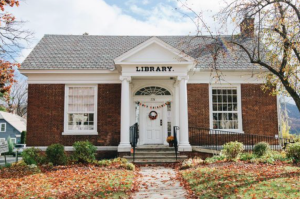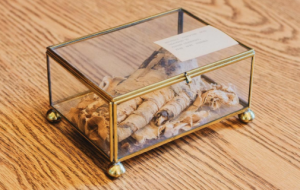Professional
Overview
As we learned on the Personal Path, the identities we hold impact our view of the world and shape how we:
- Think about ourselves and others
- Interact with others
- Understand how identity shapes other's expectations
- And how people react when we deviate from expectations
How we show up for work influences others' experiences. To create welcoming environments where everyone belongs, we must examine our assumptions, behaviors, decision-making processes, and interactions with others—both colleagues and the public. This path explores the relationship between our personal and professional values and how our identities impact our work and profession.
Public libraries can play a key role in fostering belonging through developing professional skills such as:
- Cultural Humility
- Implicit Bias
- Collection Development
- Communications
- Co-Creation
You can learn more about each of these topics in the Take Action section below.
Why it Matters
As professionals, we can model the behavior we want to see in the world. We make decisions – not always intentionally – about how we show up and interact with others. As we examine the power dynamics of our approach to and experience of work, we can make intentional choices to eliminate barriers, confront systemic power imbalances, and create joyful places for people to work, grow, and discover new ideas.
Foundation
Use the Pathways Tracking Document to document your learning journey.
Action Items
Cultural Humility
Cultural humility is a cornerstone of professional growth. Creating cultures of belonging requires a lifelong commitment to self-evaluation and self-critique. We must continue learning, growing, and exploring our understanding of ourselves and the world, including the existing power relationships and imbalances. Cultural humility requires an examination of cultural assumptions or what we think of as normal or natural ways of social interaction. To examine how these norms are established and how to challenge ourselves to think beyond our assumptions by considering:
- Why do I believe this?
- Why do others believe this?
- Are there people who believe differently about this?
Practicing cultural humility requires:
- Openness
- Self-Reflection/Awareness
- Lifelong learning
- Institutional accountability
- Empathy and compassion
- To be “other-oriented”
- Acknowledging Power Imbalances and Balancing power imbalances
(Source: Wheeler, Michael. “Cultural Competence and Cultural Humility A Literature Review for Understanding and Action.” tripartners.com, March 20, 2018.)
- Cultural Assumptions Reflection Tool
- Cultural Humility in Library Work by WebJunction
- Cultural Humility Reflection Tool
View the Cultural Humility in Library Work webinar to learn more. To access the webinar you will need a WebJunction account. Don't worry, the account is free to set up!
Implicit Bias
Implicit Bias is the non-deliberate tendency to gravitate to people who are familiar and tend to be the most like ourselves, causing us to unconsciously react unfavorably to people from outside our social group. It's important to understand that implicit Bias is not a deliberate action to harm others; rather, it is a way for our brain to make sense of the world by identifying and sorting information into patterns or categories. Our lived experiences inform how we react to unfamiliar people and groups or make assumptions about those different from ourselves, which may not align with our stated beliefs.
The Implicit Association Test (IAT)
The Implicit Association Test (IAT) measures attitudes and beliefs that people may be unwilling or unable to report. By increasing our awareness of unconscious bias, we can take steps to reduce it. Increase your own self-understanding by taking one or more Implicit Association Test(s).
Collection Development
Our collection development decisions should communicate a message that all are welcome. Diverse books are crucial in libraries because they allow people to see themselves represented in literature. Read the article about Rudine Sims Bishop: ‘Mother’ of multicultural children’s literature.
Communications
Explore the importance of inclusion and representation in design and examine how your library’s signage, marketing materials, and online communication can contribute to a sense of belonging for all by viewing Designing for Diversity in Your Library’s Communications
Co-Creation
Partnerships led by those most impacted can help libraries transform diversity, equity, and inclusion work into services and programs. Learn about co-creation and some real-life examples by reading Co-create authentically with your community.
What are some things we can do as information professionals?
- Take risks to serve underserved populations
- Change behavior based on new information/best practices
- Find your local experts and elevate their voices
- Reexamine your ideas of how things "should" be - look for possibilities rather than limitations
- Diversify professional reading
- Advocate for your patrons beyond the library
- Be aware of where our professional and personal values overlap
Building a Shared Culture
Library: Caldwell Lake George Public Library, Caldwell Lake George, NY
Population: 3,502
Budget: $124,163


Visitors to Lake George inevitably pass by the Caldwell Lake George Library on Canada Street, the main street in town. Some stop in for programs, and others come to use the bathroom. And in the summer of 2023, one family came to visit – in the summer months, Lake George’s population swells to more than 75,000 per week – and spent some time browsing, looking at book displays, and chatting about the area with library director Laura Burrows.
The next day, the family returned and made a beeline for Burrows. “We have to tell you,” they said, “We talked about our visit all evening. We were thrilled to see our child represented in your library.”
During their visit, they noticed The Sun and the Star by Rick Riordan in one of the book displays. Their 12-year-old child is non-binary and was delighted to see a book representing their life. They then wandered about the library and were thrilled to discover numerous titles with non-binary characters.
“Kids want to see themselves in the library,” said Burrows. “Our goal is to make everyone feel welcome. It’s such a gift that our population changes so significantly in the summer, and we have a chance to meet so many different people. And when people walk in and see themselves represented, it’s powerful.”
Before the family left, they made a generous donation to the library. Fun fact: the library has a mummy's hand!!
- Webjunction: Resources on Book Challenges and Intellectual Freedom
- Patrick Power Library Blog: How and why you should diversify your reading list!
- Webjunction: Building Connections with Community Assets
- Forbes Magazine: 6 Ways to Be an Authentic Ally at Work by Holly Corbett
- MSW Online: Check Your Bias: Resources to Unlearn Implicit Bias
- Ideo U: Belonging at Work: How to Foster Inclusion and Collaboration by Susie Wise
We know you're already doing great work. Please take a moment to share your story.